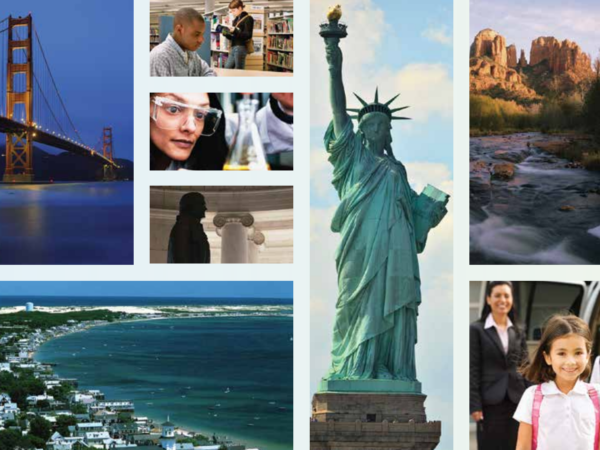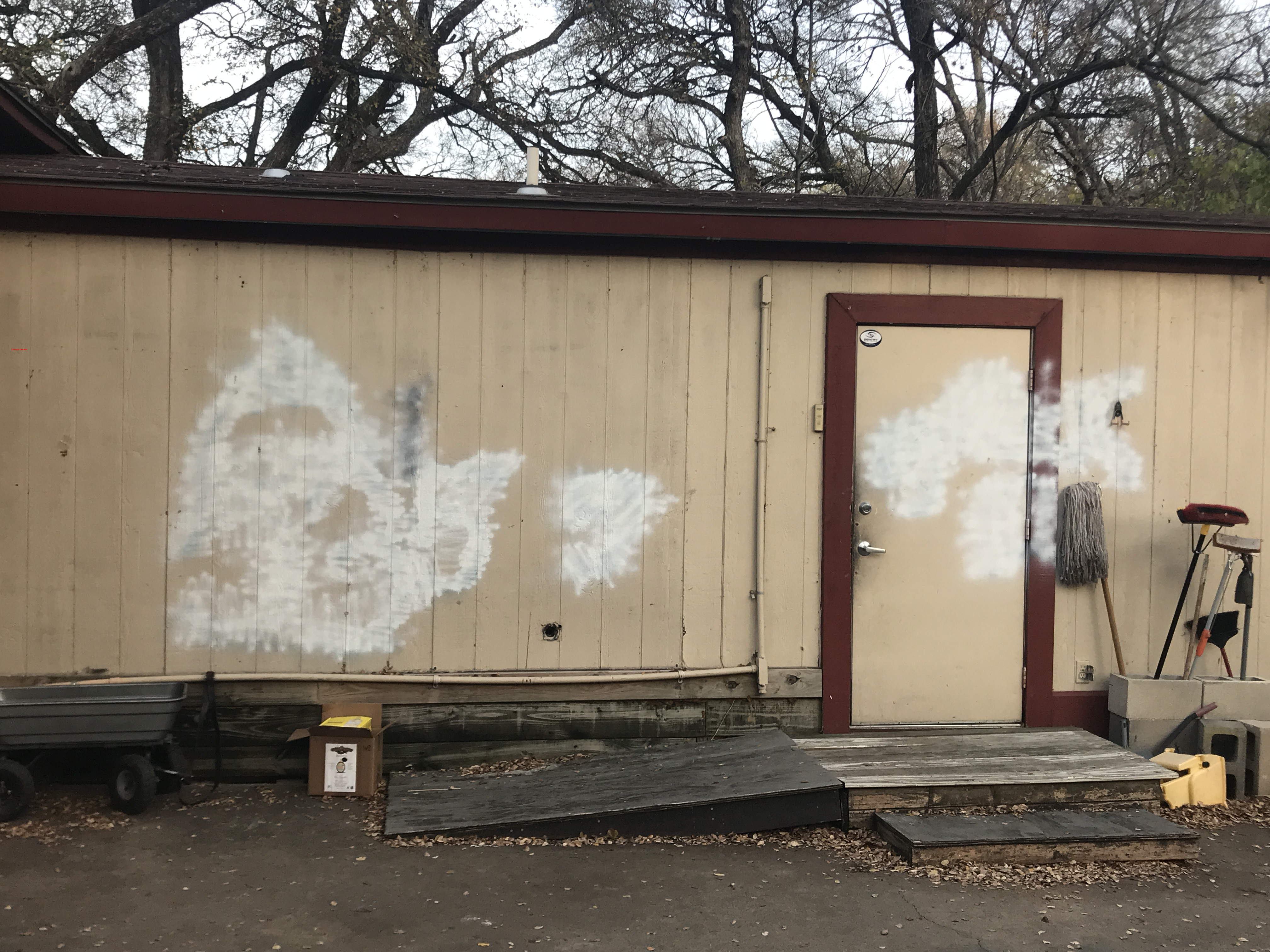(By JUSTINE LOCKHART)
The click, click, click of suitcase wheels against the tile floor ripples through waves of conversations. Each voice is different in pitch and accent, and the different languages tangle in the air like yarn.
The feeling of excitement begins to rise up as the plane peaks in elevation, but there is something else as well — sadness.
This is the moment they leave everything behind. The city scape grows smaller and smaller in the window, and in an instant their homes and family are out of reach.
“It’s not easy to describe it,” Austin Community College Professor Maria Gebara said.

“You’re so anticipating it but at the same time within a split of a second once you’re sitting in that plane, once they close the door… then that’s when you realize what you left.”
Gebara is one of America’s many immigrants. She arrived in the U.S. from Lebanon in 1997.
“Coming here it was like I couldn’t believe it. It’s something that no words can describe,” Gebara said.
In 2018, 13.5% of the U.S. population was made up of immigrants, according to the Pew Research Center. Although the bulk of these people come from Mexico and other Central and South American and Asian countries, many come from Europe as well.
Jose Rubio immigrated from Madrid, Spain.
“I was looking for an international experience,” Rubio said.
Although Rubio and Gebara come from very different backgrounds and countries, both were attracted to the opportunities available in the U.S.
“At a certain point I knew I would have more opportunities here,” Rubio said. “I didn’t know why exactly, but I imagined that according to my personality — I have more of an entrepreneurial personality — I would be exposed to more opportunities here than there.”
Rubio’s entrepreneurial personality also impacts what he misses most about the U.S. when he goes back to Spain.
“The constant move that everybody has here, no it’s not move, its drive. Drive is the right word,” Rubio said. “The people that I am surrounded with, that feeling that they are not satisfied. They are pleased but not satisfied. That’s what I miss most when I am not there.”
Gebara, on the other hand, originally moved here to be with her husband, but she considered the opportunities offered in America another major advantage of the move.
“Being here has opened lots of opportunities for me,” Gebara said. “And that’s why I encourage everyone to just come. Come and do something. This is the place of opportunities.”
For Helge Judenau, the main reason for his move from Germany to the U.S. was his wanderlust as well as his wife.
“Why be bound to a place if you don’t have to?” Judenau asked. “The world is big and there’s so much to see.”
This wanderlust has been a driving force for Judenau since childhood.
“I remember my family went on a lot of vacations in Europe,” Judenau said. “My dad and I met so many other Germans who were like ‘ah I can’t wait to get home,’ and to me it was always like ‘no actually I want to stay.’”
Even though all three of them were set on coming to the U.S., each had to face their own emotions when leaving their former homes.
“I’m going to confess to you something: I was so sad that I couldn’t even tell [my family] goodbye,” Rubio said. “It was so tough that I asked them not to come with me to the airport. I left the house that day just by my own.”
Judenau also struggled with leaving family behind.
“It was fairly emotional having to say goodbye to everybody,” Judenau said.
Many of Judenau’s friends and family even tried to persuade him to stay in Germany.
“No one was really happy about it. They all tried to talk me more or less out of it,” Judenau said. “Pretty much everybody felt the need to play devil’s advocate.”
Even now, leaving after a visit is emotional for Gebara.
“So the first trip was ‘Oh my God I just want to be there,’” Gebara said. “Every other trip when you go that’s when you realize oh my God your gonna leave your parents.”
Gebara also feels heartbroken when she thinks of all the things she doesn’t get to experience along with her family in Lebanon.
“You still miss a lot of things. My nieces, my nephews growing up,” Gebara said. Judenau relates to Gebara’s feeling of missing out on family events.
Even though it’s difficult for her to be separated from her family, messaging services such as WhatsApp have made it easier for Gebara to cope.
“If I have a WhatsApp group with my family, if I hear my brothers are doing something and getting together it’s like yeah it would be nice to be able to join them,” Judenau said.
“But it’s not as painful as it used to be,” Gebara said. “Its still painful, just not as much as it used to be.”
Rubio has also grown less homesick since his move.
“Lately I’m not very much home sick. I’ll tell you why. Because at the end of the day your home is where your family are and if I am here with my family this is home,” Rubio said.
Although Rubio feels at home in the U.S. now, he admits that the first few months were difficult for him.
“You have to be prepared mentally and physically,” Rubio said. “Once you move the culture clash is huge.”
Living in a completely different part of world was stressful for Rubio, but he believes he was lucky with the amount of kindness he was shown.
“Everyone here treated us like never before; we had no rejection. I had a great friend from the very first moment,” Rubio said. “But even with that, I felt sick for the first three months. It’s that reaction your body has to being in a weird environment.”
But Rubio did his best to keep his spirits up as he adjusted to the new culture, and waited for his wife and kids to join him in the U.S.
“I always knew that that was going to be temporary. That helped me a lot,” Rubio said. “I thought ‘Okay, this isn’t going to be forever. This is something you have to go through but it’s not going to last forever.’”
Judenau also had a hard time adjusting to a new way of life. One piece of advice he has for future immigrants is to “start familiarizing yourself with the American culture.”
Rubio, Gebara, and Judenau have all assimilated into the American way of life, but all three feel they are caught in between two cultures.
“It’s weird this state of mind that you get because you don’t feel like you’re from here but you feel that you are not from there as well,” Rubio said.
Gebara also feels as if she is living in a limbo between different countries.
“So you feel like you’re torn. What am I?” Gebara said. “It’s something that still hurts me. Even after 22 years you feel like there’s a loss of identity. Where do you belong?”
However, Gebara believes that a big part of being stuck in this limbo is the perspective of the Lebanese and American people.
“I know I belong here and I know I belong there. It’s the perspective of the people; they are stuck in their own perspective,” Gebara said. “They don’t understand the American way; Americans don’t understand the Lebanese way.”
Gebara and Rubio are not alone in feeling they are straddling the line of two different worlds.
“Zwischen den stühlen. I love that German idiom,” Judenau said.
Judenau believes that the idiom, which translates to “in between the chairs,” perfectly describes the feeling of many immigrants.
“You’re solidly between them. And when I think about it it’s actually not a bad place to be, if you’re just sitting comfy,” Judenau said. “I mean there’s a certain boundlessness which I enjoy.”




